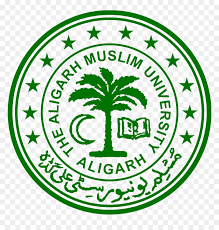General Information
Aligarh Muslim University (AMU) isn't just a university; it's a monumental institution with deep historical roots and a unique identity. Established originally by Sir Syed Ahmad Khan as the Muhammadan Anglo-Oriental (MAO) College in 1875, it was granted university status by the Indian Parliament in 1920, making it a public Central University.
Its founding vision was to blend modern scientific education with Islamic values, aiming to uplift the Muslim community while being open to all. AMU holds the distinction of being an Institution of National Importance and maintains a unique residential and educational culture. It's renowned for its contribution to various fields and its vibrant intellectual environment.
Key Recognitions:
A Central University established by an Act of Parliament.
Recognized by the University Grants Commission (UGC).
Consistently ranked among the top universities in India by the National Institutional Ranking Framework (NIRF).
Accredited by the National Assessment and Accreditation Council (NAAC) with a top 'A+' Grade.
Holds necessary approvals from professional bodies like NMC (Medical), DCI (Dental), AICTE (Engineering/Management), BCI (Law), CoA (Architecture), NCTE (Education).
MCI Recogination
Recognized Recognized (show cause notice for withdrawal of recognition revoked). Continuation of recognition granted for 150 seats when degree granted on or after 2018-2019. Annual renewal permission granted for 150 MBBS seats for AY 2024-25
Campus Facilities
The Campus: Historic Charm Meets Vast Expanse
AMU's main campus is a sprawling, self-contained world within Aligarh.
Location: Situated in Aligarh, Uttar Pradesh.
Campus Size & Feel: It's one of the largest residential university campuses in India, spread over a massive 1155 acres (approx. 467 hectares). The campus beautifully blends historic Indo-Saracenic architecture with modern buildings, set amidst lush greenery and wide avenues. It has a distinct, traditional, and deeply academic atmosphere.
Infrastructure & Facilities: As a major central university, it's incredibly well-equipped:
Maulana Azad Library: One of the largest and most impressive university libraries in Asia, holding millions of books, manuscripts, and extensive digital resources.
Faculties & Departments: Numerous buildings housing its 13 faculties (like Arts, Sciences, Engineering, Medicine, Law, Theology, etc.) and specialized centers.
Laboratories & Workshops: State-of-the-art labs for sciences, engineering, medicine, and workshops for practical training.
Museums & Cultural Centers: Several museums (including the Sir Syed Academy Museum), art galleries, and cultural centers enrich campus life.
Sports Complex: Excellent and extensive facilities for almost all major indoor and outdoor sports, including horse riding.
Residential Halls (Hostels): A defining feature – AMU is highly residential, with numerous historic 'Halls of Residence' providing accommodation and fostering a unique community life.
Health Services: Its own large teaching hospital (JNMCH) provides medical care.
Other Amenities: Banks, post offices, shopping centers ('Tikonia'), auditoriums, canteens, guest houses – it's practically a small town.
Hospital & Medical Facilities
Leading tertiary care hospital attached to the institution
Healthcare Hub: Jawaharlal Nehru Medical College & Hospital (JNMCH)
AMU has a very strong and integral medical wing.
Medical College & Hospital: Yes, AMU runs the prestigious Jawaharlal Nehru Medical College (JNMC) and its associated large teaching hospital, Jawaharlal Nehru Medical College Hospital (JNMCH), both located within the university campus.
Scale & Services: JNMCH is a major tertiary care referral hospital for a vast region, with a bed capacity reportedly exceeding 1500 beds. It offers comprehensive healthcare services across:
All major clinical specialties and numerous super-specialties (Cardiology, Neurology, Oncology, etc.).
24/7 Emergency, Trauma, and Critical Care (multiple ICUs).
Advanced diagnostics (MRI, CT, modern labs), Blood Bank.
State-of-the-art Operation Theatres.
Dedicated centers/institutes (e.g., for Trauma, Cardiology, Ophthalmology).
Dental College: AMU also has a separate, highly-regarded Dr. Ziauddin Ahmad Dental College & Hospital.
Educational Role: JNMC & JNMCH (along with the Dental College) are the core training grounds for AMU's MBBS, MD/MS, BDS, MDS, Nursing, and Paramedical students, offering immense clinical exposure due to the high patient volume.
Fee Structure
State University Affordability
Fee Structure: Central University Affordability
Being a Central University, AMU offers high-quality education at highly subsidized and extremely affordable fees, especially compared to private universities.
City Details
Hostel & Mess
Campus Living: The Hall Culture
AMU is predominantly a residential university, and its hostel system ('Halls of Residence') is central to its identity.
Accommodation: Extensive separate Halls of Residence for boys and girls provide accommodation to a vast majority of students. Each Hall has several hostels attached to it. Getting hostel accommodation is usually standard for most admitted students.
The Hall Vibe: Living in a Hall is an integral part of the AMU experience. Each Hall has its own traditions, common rooms (often with reading rooms, indoor games, TV), dining hall, and provost/warden system, fostering a strong sense of community and distinct sub-culture. Many Halls are historic buildings.
Mess System: Each Hall runs its own dining hall (mess), providing meals at scheduled times. The food is typically simple, nutritious, and catered to a large student body.
Cost: Reflecting its Central University status, the combined cost for hostel accommodation and mess charges is extremely affordable. Expect annual charges to be remarkably low, often in the range of ₹15,000 - ₹30,000 (varies slightly by Hall and includes room rent, basic amenities, and food charges). This is a major advantage of studying at AMU.
Miscellaneous
Admissions & Career Pathways: Entry & Beyond
Getting In:
How: AMU conducts its own university-level entrance examinations for most of its courses (B.Tech, BA LLB, MBA, BA/BSc/BCom Hons, MA/MSc/MCom, B.Ed, etc.). These tests are highly competitive.
Medical/Dental Exception: For MBBS/BDS, admission is strictly based on the NEET-UG rank, followed by AMU's own counselling (separate from MCC/State counselling, as AMU has specific internal/external quotas).
PG Medical/Dental: Admission to MD/MS/MDS is based on NEET-PG/NEET-MDS ranks, followed by AMU's counselling.
Application: Candidates apply directly to AMU through its dedicated admission portal (amucontrollerexams.com).
Quotas: AMU has specific reservation policies, including quotas for 'Internal' students (those who passed the qualifying exam from AMU schools/university) and 'External' candidates.
Career Launch (Placements): AMU has a central Training & Placement Office (General), and individual faculties/colleges (like ZHCET for Engineering) have dedicated placement cells.
Focus: Placement activity is strong in Engineering (ZHCET is highly regarded), Management, Computer Science, and Law.
Recruiters: Attracts a wide range of recruiters, including major IT companies (Infosys, Wipro, TCS), core engineering firms, consultancy groups, banks, educational institutions, and PSUs. Many alumni hold prominent positions globally, aiding placements.
Salary Outcomes: Placements are generally good, especially for Engineering. Average packages for B.Tech often range from ₹6 LPA to ₹8 LPA, with top students securing much higher offers. MBA placements also see decent averages. Placements for other streams vary. A significant number of graduates also excel in competitive exams (Civil Services, Judiciary) or pursue higher studies abroad.
Information for NRI / Foreign Nationals
AMU has a well-defined policy for admitting Foreign Nationals and Children of NRIs.
Collage Images Gallery
Facilities & Campus Life
Well-equipped Library
Experienced Faculty
Computer Lab
Sports Activities
Heritage Campus
Frequently Asked Questions
Why Consult With Us?
- 15+ years of experience in medical education counseling
- 5000+ students successfully guided
- 50+ partner universities worldwide
- Free initial consultation with no obligation














